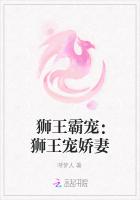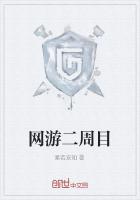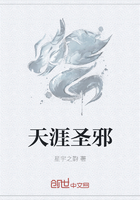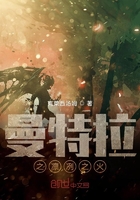I opened my trunk, took out my linen and my clothes, which I gave to my landlord, and I saw the officer's astonishment at seeing my trunk half filled with papers.
"These are all the papers I have," I said. I locked the box and gave the officer the key.
"I advise you, sir," he said, "to put all necessary articles into a portmanteau." He then ordered the landlord to send me a bed, and finally asked me if I had any papers in my pockets.
"Only my passports."
"That's exactly what we want," he rejoined, with a grim smile.
"My passports are sacred; I will never give them to anyone but the governor-general. Reverence your king; here is his passport, here is that of the Count of Aranda, and here the passport of the Venetian ambassador. You will have to bind me hand and foot before you get them."
"Be more moderate, sir. In giving them to me it is just as if you gave them to the viceroy. If you resist I will not bind you hand and foot, but I shall take you before the viceroy, and then you will be forced to give them up in public. Give them to me with a good grace, and you shall have an acknowledgement."
The worthy landlord told me I should be wiser to give in, so I let myself be persuaded. The officer gave me a full quittance, which I put in my pocketbook (this he let me keep out of his kindness), and then I followed him. He had six constables with him, but they kept a good distance away.
Comparing this with the circumstances of my arrest at Madrid, I thought myself well treated.
Before we left the inn the officer told me that I might order what meals I pleased, and I asked the landlord to let me have my dinner and supper as usual.
On the way I told him of my adventure of the night before; he listened attentively but made no comments.
When we reached the citadel I was delivered to the officer of the guard, who gave me a room on the first floor. It was bare of furniture, but the windows looked on to a square and had no iron bars.
I had scarcely been there ten minutes when my carpet bag and an excellent bed were brought in.
As soon as I was alone I began to think over the situation. I finished where I ought to have begun.
"What can this imprisonment have to do with my last night's adventure?" I
reflected.
I could not make out the connection.
"They are bent on examining my papers; they must think I have been tampering in some political or religious intrigue; but my mind is quite at ease on that score. I am well lodged at present, and no doubt shall be set free after my papers have been examined; they can find nothing against me there.
"The affair of my attempted assassination will, no doubt, be considered separately.
"Even if the rascal is dead, I do not see what they can do to me.
"On the other hand, my landlord's advice to fly from Barcelona looks ominous; what if the assassins received their orders from some person high in authority?
"It is possible that Ricla may have vowed my ruin, but it does not seem probable to me.
"Would it have been wise to follow the landlord's advice?
"Possibly, but I do not think so; my honour would have suffered, and I
might have been caught and laid up in some horrid dungeon, whereas for a prison I am comfortable enough here.
"In three or four days the examination of my papers will have been completed, and as there is nothing in them likely to be offensive to the powers that be, they will be returned to me with my liberty, which will taste all the sweeter for this short deprivation.
"As for my passports they all speak in my favour.
"I cannot think that the all-powerful hand of the viceroy could have directed the assassin's sword; it would be a dishonour to him, and if it were so, he would not be treating me so kindly now. If it were his doing, he must have heard directly that the blow had failed, and in that case I do not think he would have arrested me this morning.
"Shall I write to Nina? Will writing be allowed here?"
As I was puzzling my brains with these reflections, stretched on my bed (for I had no chair), I heard some disturbance, and on opening my window I saw, to my great astonishment, Passano being brought into the prison by a corporal and two soldiers. As he was going in, the rascal looked up and saw me, and began to laugh.
"Alas!" I said to myself, "here is fresh food for conjecture. The fellow told Nina's sister that I should be sorry for what I had done. He must have directed some fearful calumny against me, and they are imprisoning him so as to be sure of his evidence."
On reflection, I was well pleased at the turn affairs had taken.
An excellent dinner was set before me, but I had no chair or table. The deficiency was remedied by the soldier who was in charge of me for the consideration of a duro.
Prisoners were not allowed to have pen and ink without special permission; but paper and pencils were not included under this regulation, so my guard got them for me, together with candles and candlesticks, and I proceeded to kill time by making geometrical calculations. I made the obliging soldier sup with me, and he promised to commend me to one of his comrades who would serve me well. The guard was relieved at eleven.
On the fourth day the officer of the guard came to me with a distressed look, and told me that he had the disagreeable duty of giving me some very bad news.
"What is that, sir?"
"I have received orders to transfer you to the bottom of the tower."
"To transfer me?"
"Yes."
"Then they must have discovered in me a criminal of the deepest dye! Let us go at once."
I found myself in a kind of round cellar, paved with large flagstones, and lighted by five or six narrow slits in the walls. The officer told me I must order what food required to be brought once a day, as no one was allowed to come into the 'calabozo', or dungeon, by night.
"How about lights?"
"You may lave one lamp always burning, and that will be enough, as books are not allowed. When your dinner is brought, the officer on duty will open the pies and the poultry to see that they do not contain any documents; for here no letters are allowed to come in or go out."
"Have these orders been given for my especial benefit?"


